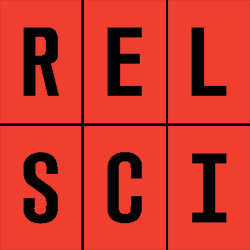 In February of last year, a New York-based company called Relationship Science (RelSci) pulled back the curtains from an online platform it has been developing since 2010, one that now features 3.5 million profiles of the world’s “decision-makers,” all of them mapped out to illustrate how they’re connected to one another and everyone else.
In February of last year, a New York-based company called Relationship Science (RelSci) pulled back the curtains from an online platform it has been developing since 2010, one that now features 3.5 million profiles of the world’s “decision-makers,” all of them mapped out to illustrate how they’re connected to one another and everyone else.
Characterized as a “Rolodex for the 1 percent” by Dealbook, it’s not a directory that one is asked to join. Power players can’t remove themselves, either. Everything that Relationship Science uses is public data – some scraped from the Web, some from third-party data providers, and some turned up by some of its 500 employees in Indian and New York, who pore over SEC documents, campaign finance databases, annual reports and the like to create a graphical view of each individual and his or her “strong” to “weak” links to others.
The big idea is to help businesses and nonprofits recruit, strike deals, raise money and sell stuff by arming them with more information about how to get to particular people. And nearly 450 clients – many on Wall Street – have bought into the vision, paying Relationship Science between $9,000 and “upward of six figures” a year for its competitive intelligence. Now, the company is looking to pull others into the fold, from political campaigns to sports franchises to more VCs, the company’s chief marketing officer, Josh Mait, told me yesterday.
Relationship Science has already raised $90 million from investors, including billionaires Henry Kravis, Ken Langone, and Ron Perelman. Are you in the market again or will you be in the foreseeable future?
I don’t have a crystal ball. I think we’ve raised a decent amount of money and that it’s given us the ability to build a sophisticated asset that can now be extended in a number of ways.
The company doesn’t provide users with phone numbers or email addresses or a way to message anyone else on the platform, putting the onus on users to find creative ways to contact the people they research. Will that ever change?
We don’t have contact information because we’d have a big fat spam machine otherwise. We made a purposeful decision to provide instead deep dossiers on people and companies and to let our clients – who are pretty sophisticated businesspeople – figure out how to act on it.
What are some of the platform’s most-used features?
One, called Pathfinder, allows you to run paths between any entity to any entity. Say I’m a partner at a VC firm, looking at a company and trying to reach potential investors. I might make a list of all my board members, which would provide me with more axis points to find relationships. Our search capabilities also help clients to do smart prospecting. If you want to hire someone with a particular criteria, it might turn up 15,000 individuals, but we can help you find people in that grouping who are just one degree [of separation] away from you. And we have news and alerts on the people most important to you, which isn’t always a news item in a publication but can be when someone sells a stock or makes a donation to a cause.
Are you capturing people’s outside interests? I’d think that would be useful.
We’re able to capture some interests and affiliations. I wouldn’t want to exaggerate it , though. It’s hard data to capture other than sporadically. We do allow clients to put in their own information, and when they come across someone’s profile, we’ll surface any commonalities they have with that person.
VCs already have other options. Many might also argue that it’s not rocket science, figuring out who is connected to whom in the startup industry. It’s not nearly so big or opaque as Wall Street.
I think you’re right about that perception. But I’d argue that any firm that’s looking for a competitive advantage should have a good handle on what their strongest relationships are — especially during critical moments when you want any edge you can get.
Sign up for our morning missive, StrictlyVC, featuring all the venture-related news you need to start you day.
